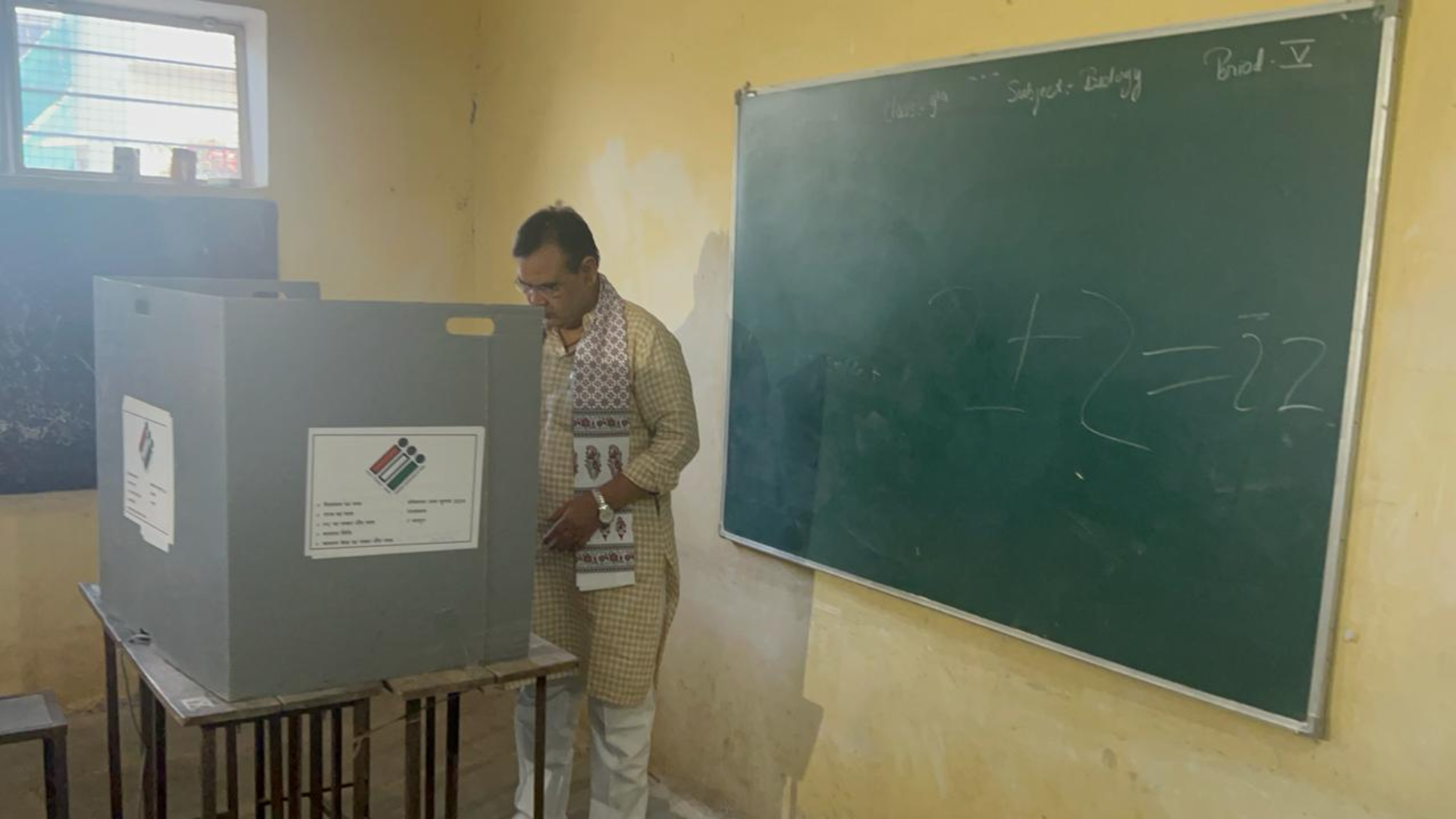Rajasthan Chief Minister Bhajanlal Sharma cast his vote at a polling booth in Jaipur during the ongoing Lok Sabha elections, expressing confidence in the Bharatiya Janata Party’s (BJP) prospects across all 25 Parliamentary constituencies in the state.
Sharma stated that Rajasthan is poised to replicate the electoral successes of the 2014 and 2019 Lok Sabha elections, during which the BJP and its allies secured victories in all 25 seats. He emphasized the importance of voter participation in strengthening democracy and urged citizens to exercise their franchise.
State Minister Rajyavardhan Rathore, also casting his vote, highlighted the significance of the elections for the nation. He emphasized India’s stature as the fifth-largest economy and the largest democracy in the world, expressing confidence in its continued growth under the leadership of Prime Minister Modi.
In the Jaipur City Lok Sabha constituency, Manju Sharma is the BJP candidate, while Pratap Singh Khachariyawas represents the Congress. Historically, both parties have seen victories in this constituency, currently held by Ramcharan Bohra of the BJP.
Rajasthan’s 25 parliamentary constituencies are set to vote in two phases. The first phase, held on April 19, saw voting for 12 seats, while the remaining 13 seats will be contested in the second phase on April 26.
The ongoing Lok Sabha elections mark the commencement of the world’s largest democratic exercise, with the first phase covering 102 constituencies across 21 states and Union Territories.
This election, spanning from April 19 to June 1, is poised to be the second longest polling exercise in India’s electoral history, following the inaugural general election held over five months between September 1951 and February 1952. Vote counting is scheduled for June 4.























